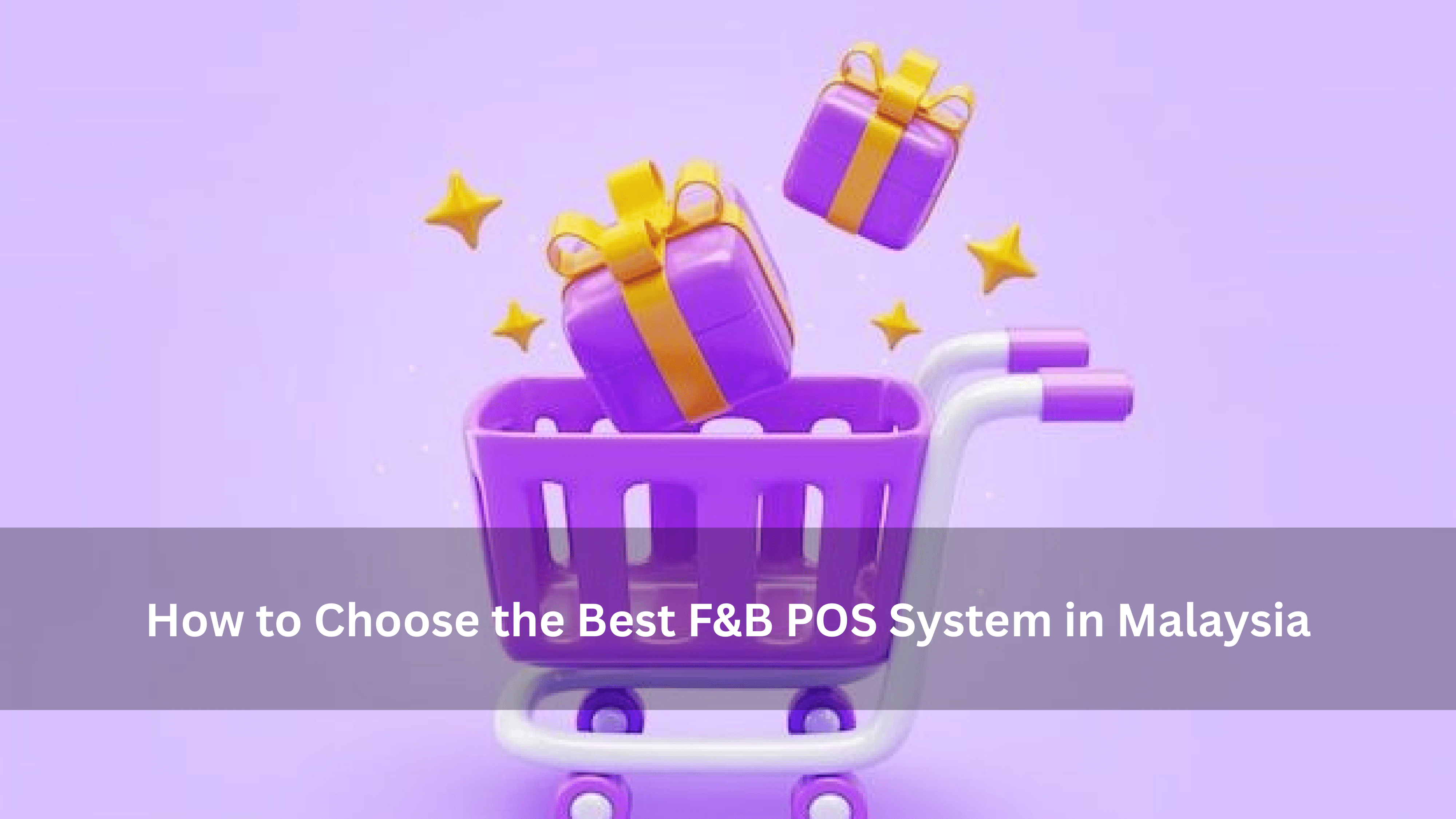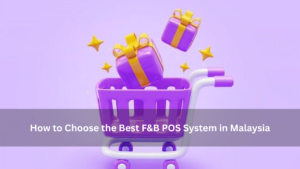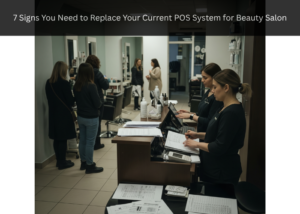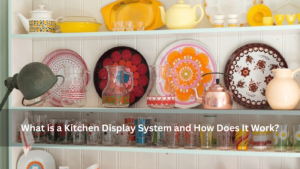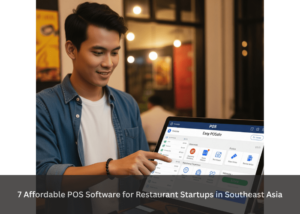The food and beverage industry in Malaysia is one of the most competitive and fast-paced sectors. Whether you’re running a casual café in Penang, a fine-dining restaurant in Kuala Lumpur, or a bubble tea kiosk in Johor, operational efficiency is critical. This is where an F&B POS system Malaysia businesses can rely on makes a real difference.
A good POS system does more than process payments. It helps manage inventory, track orders, monitor sales, support staff, and improve the overall dining experience. With countless solutions available on the market, choosing the right F&B POS system in Malaysia can be overwhelming.
This guide explores what you should look for, key features to prioritize, and tips for choosing a system tailored to Malaysian F&B operations.
Understanding the Role of an F&B POS System in Malaysia
An F&B POS system Malaysia businesses use today is not just a digital cash register. It functions as a full-service platform for managing front-of-house and back-of-house operations. The best systems integrate with kitchen display systems (KDS), online ordering apps, delivery platforms, accounting software, and customer loyalty programs.
In Malaysia’s dynamic food scene, POS systems must also support local payment methods, tax rules (SST), language preferences (Malay, English, Chinese), and customer expectations for fast, contactless service.
Key Features to Look for in an F&B POS System in Malaysia
When selecting an F&B POS system Malaysia restaurants and cafés trust, prioritize these essential features:
Order Management: Accept and modify dine-in, takeaway, and delivery orders in real time.
Multi-Device Access: Use the POS on tablets, desktops, and mobile phones.
Offline Mode: Continue operations even during internet outages.
Cloud-Based Access: Manage your restaurant remotely from anywhere.
Local Payment Integration: Support for e-wallets like GrabPay, Touch ‘n Go, Boost, and DuitNow.
Multilingual Interface: Allow staff to operate in Malay, English, or Mandarin.
Compliance: SST integration and compliance with local tax reporting.
A tailored POS system can streamline workflows, reduce errors, and provide real-time business insights.
Why Local Support Matters for F&B POS System in Malaysia
Technical support can be a dealbreaker. Many F&B businesses operate long hours, including weekends and holidays. If your POS system fails during peak hours, downtime can result in lost revenue and frustrated customers.
Choosing an F&B POS system Malaysia providers support locally gives you access to:
Fast response times
On-site hardware support
Training and onboarding in your preferred language
Ongoing system updates based on local F&B industry needs
Some Malaysian providers also offer WhatsApp support, which is highly convenient for local restaurant managers.
Evaluating Hardware Compatibility for F&B POS System in Malaysia
Your POS software is only as good as the hardware it runs on. An F&B POS system Malaysia restaurants rely on should support various devices such as:
Touchscreen terminals
Tablets and iPads
Receipt printers
Kitchen printers or kitchen display systems (KDS)
Cash drawers
Barcode scanners
If you’re already using certain hardware, check whether the POS software is compatible. This can save you thousands in equipment upgrades.
Cloud-based POS systems often offer BYOD (Bring Your Own Device) options, allowing you to use smartphones and tablets instead of proprietary hardware.
The Importance of Reporting and Analytics in F&B POS System Malaysia
Running an F&B business without data is like driving blind. A robust F&B POS system Malaysia businesses use should come with real-time analytics and detailed reporting tools.
Look for these capabilities:
Daily, weekly, and monthly sales reports
Best-selling and underperforming menu items
Staff performance tracking
Peak dining time analysis
Inventory variance reports
These reports help you make informed decisions, such as when to launch promotions, how to adjust pricing, and who to schedule during peak hours.
Integrating Online Orders with Your F&B POS System in Malaysia
Online ordering and food delivery are major revenue streams in Malaysia, especially post-pandemic. Your F&B POS system Malaysia platform should support integration with delivery services like GrabFood, Foodpanda, and ShopeeFood.
With integration, orders placed online go directly into the POS and kitchen system, eliminating manual entry and reducing human error. Additionally, it allows you to maintain centralized control of your menu, pricing, and inventory across all platforms.
Some systems even support QR code ordering at tables, which enhances customer convenience and reduces the need for physical menus.
Adapting the F&B POS System in Malaysia to Your Business Model
Different F&B business types have different operational needs. The ideal F&B POS system Malaysia restaurants use should be customizable for:
Quick-Service Restaurants (QSRs): Fast checkout, combo meal options, KDS integration.
Cafés and Bakeries: Table numbers, loyalty stamps, scheduled item availability.
Fine Dining: Table reservation management, split billing, course-based ordering.
Food Trucks or Pop-Ups: Mobile POS support, offline mode, fast setup.
Make sure the POS solution you choose can adapt to your business model both now and as you grow.
Comparing Pricing Models of F&B POS System Providers in Malaysia
Cost is always a consideration, but the cheapest option isn’t always the best. An F&B POS system Malaysia vendor may offer:
Monthly subscriptions: Often cloud-based, includes support and updates.
One-time purchase: Requires separate hardware purchase and may lack cloud features.
Hybrid pricing: Hardware is purchased, but software is subscribed monthly.
Also consider hidden costs like:
Additional charges for extra users or devices
Integration fees for delivery apps
Annual support fees
Charges for system updates or bug fixes
Calculate the total cost of ownership (TCO) and compare that against the value you gain in terms of efficiency and data-driven decision-making.
Data Security and Compliance in F&B POS System Malaysia
An overlooked aspect when selecting an F&B POS system Malaysia vendors offer is data security. POS systems handle sensitive customer and financial data that must be protected.
Ensure your POS system includes:
Secure cloud storage with encryption
Role-based access controls for staff
Daily backups and disaster recovery
SST-compliant tax receipts and reports
GDPR-style consent mechanisms for storing customer data
The last thing any business needs is a data breach or audit failure that results in legal or financial penalties.
Future-Proofing Your Business with the Right F&B POS System in Malaysia
Technology evolves quickly, and so do customer expectations. Choosing an F&B POS system Malaysia solution that can scale with your business is a long-term investment.
Choose a vendor that:
Regularly updates its software
Offers feature expansions (e.g., CRM, loyalty programs, integrations)
Provides local and international support
Supports scalable cloud infrastructure
Has a positive track record with local clients
A scalable POS system ensures that whether you expand into more outlets, start franchising, or go online, your operations stay consistent and manageable.
Final Thoughts: Making the Right Choice for Your F&B POS System in Malaysia
Choosing the F&B POS system Malaysia right businesses trust takes time, research, and a clear understanding of your operational needs. A good POS system is more than a transaction tool — it’s a partner in growth, efficiency, and customer satisfaction.

